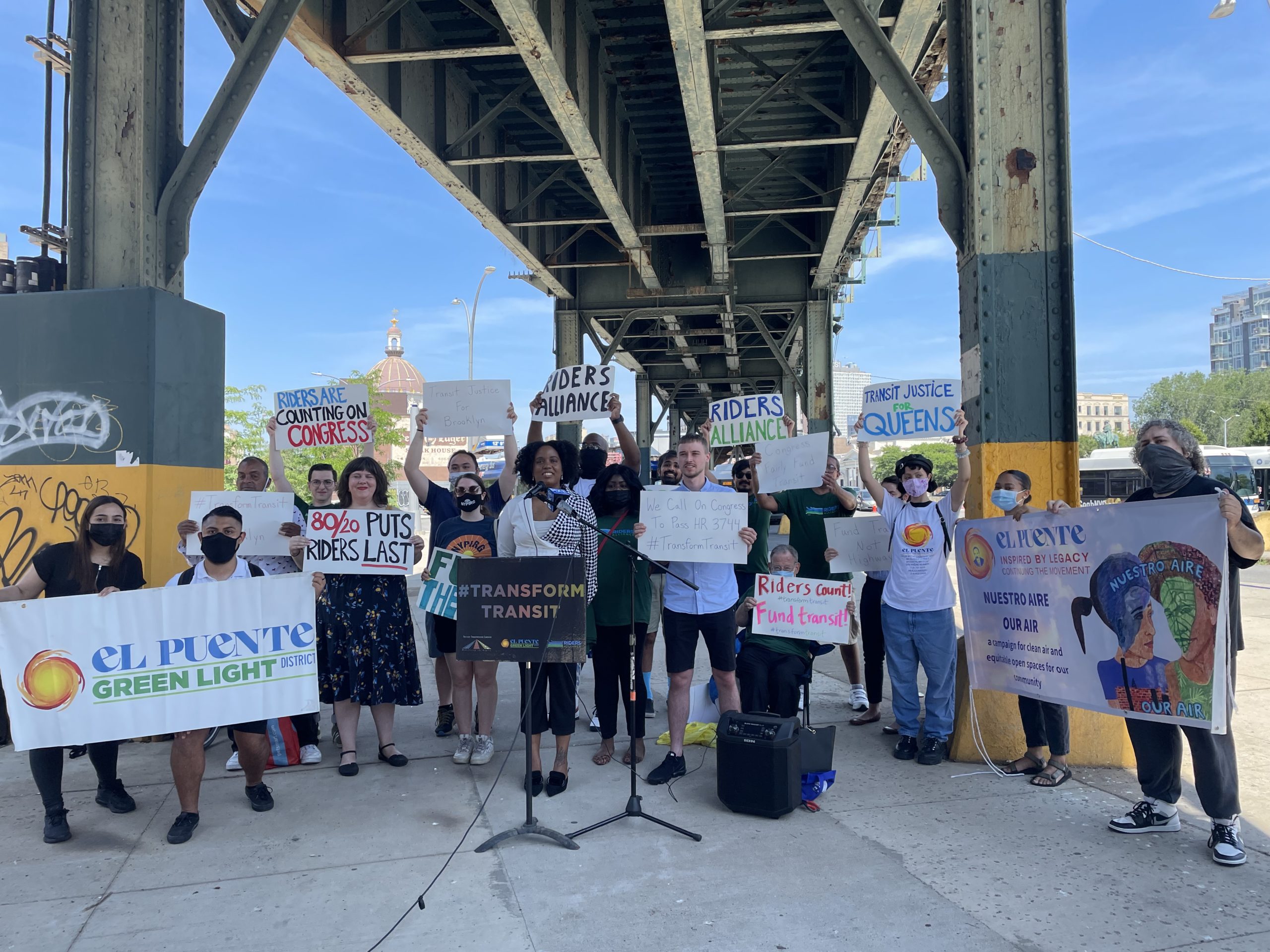#TransformTransit For All: Brooklyn Electeds, Advocates, and Riders Demand Federal Funding for Equitable and Sustainable Transit Service
With infrastructure talks heating up, speakers urged President Biden and Congress to make a generational, multibillion dollar investment to advance environmental justice through better public transit.

Assemblymember Emily Gallagher joined public transit riders and advocates at a rally today in Williamsburg, calling on Congress to advance environmental justice through investment in better public transit. Representatives from Tri-State Transportation Campaign, El Puente, and Riders Alliance spoke about the need for equitable transit in Brooklyn.
More federal funding will help connect New York’s frontline communities to more opportunities and at the same time reduce harmful air pollution and carbon emissions. After nearly 40 years, advocates across the country recognize the unfairness of existing funding formulas that favor suburban highways over urban transit, dedicating 80% of federal funding to more roads, congestion, pollution, and carbon emissions.
Speakers asked Washington policymakers for $20 billion for urgently needed new elevators, signals, electric buses, and transit access in subway deserts and $3 billion annually (out of a $20 billion nationwide program) to maintain and expand frequent and affordable service and avoid devastating fare hikes, service cuts, and job losses when pandemic aid runs out in 2023.

Brooklyn Boro
View MoreNew York City’s most populous borough, Brooklyn, is home to nearly 2.6 million residents. If Brooklyn were an independent city it would be the fourth largest city in the United States. While Brooklyn has become the epitome of ‘cool and hip’ in recent years, for those that were born here, raised families here and improved communities over the years, Brooklyn has never been ‘uncool’.